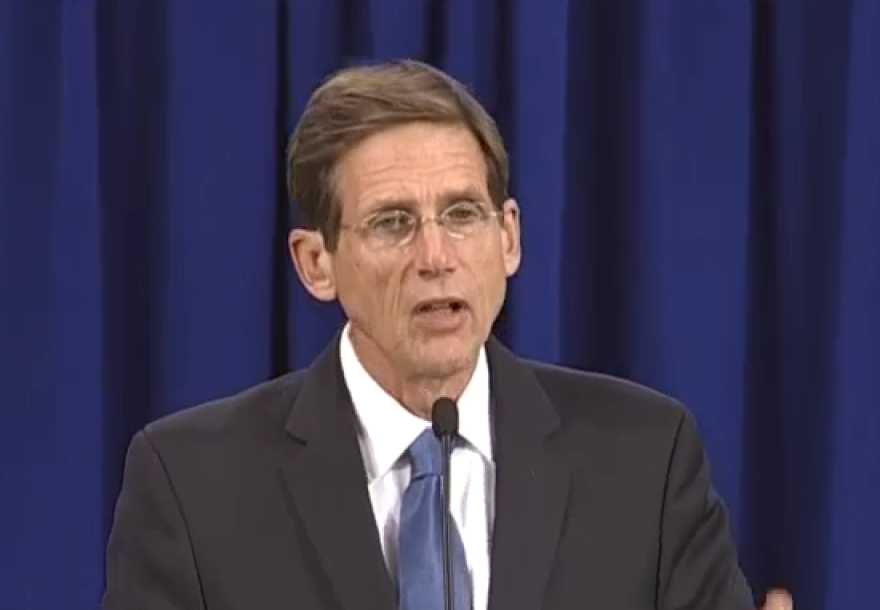Mark Connolly is running for Governor. Today, he runs his own small investment company. But his resume runs the spectrum from financial executive to deputy secretary of state.
There are a lot of reasons to run for office. Ideological convictions. Hunger for power. A sense of duty to serve. But Connolly seems driven by a desire to improve what he sees as the technical and structural weaknesses in Concord.
"We have to do things differently, and that includes the structure, and purpose of state government," he said in a recent interview.
Some of Connolly's proposals may sound familiar to those who've followed past government reform efforts. Governors, he says, should have a four-year term, rather than two years. He’d create and chair a commission to make a 10 year economic plan.
But if there’s one thing Connolly gets fired up about, it’s financial regulation: Consumer protection laws. Big banks. Auto loans.
This is familiar territory to Connolly, who’s 60. He was the state’s top securities regulator from 2002 to 2010. He points to successes investigating big corporations like ING, UBS, and Tyco.
But Connolly didn’t make it to the public eye until it a Ponzi scheme came to light, in 2009. The Meredith company at the center of the case, and the scandal that ensued, are known as “FRM," for Financial Resources Mortgage, Inc. Connolly, as state securities director, was in the middle of it. He resigned his job, claiming that other state officials were involved in a "cover up" to limit state culpability in the case.
Bob Sanders covered the scandal for the New Hampshire Business Review. He says the attorney general pointed fingers at Connolly’s bureau, saying regulators there failed to catch signs of trouble.
"From my perspective, he was the one who was trying to get information out there," Sanders said. "And from the victims’ perspective, he was the knight in shining armor, really."

In the fallout of the scheme, Connolly fought for more of FRMs banking documents to be shared state bureaus and the public. And today, as governor, he says he would work to create an independent body to oversee requests for government records.
But Connolly’s political awakening didn’t start with FRM. It was back, before his decade as a finance executive at Chubb Insurance and Fleet Bank; before he got his MBA.
It was summer in the mid-1970s. He was 18, and living with his dad in Bedford. A neighbor was running for Congress. He asked the younger Connolly to be his campaign driver. The candidate lost, but the experience inspired Connolly to run for the state legislature himself.
"So I get elected, and all of a sudden I find out there’s almost 100 people under the age of 30, and we all felt the dynamism of the time." Connolly recalled. "That was such an incredible experience."
A lot has changed since then. For one, Connolly's party. He was a Republican then, though he’s been a Democrat now for years. And, Connolly said:
"The New Hampshire that I knew in the '60s and '70s and '80s and somewhat the '90s, is gone."
The problem, Connolly says, is that the mechanisms of state government are outdated. He wants public education to better prepare graduates for the modern workforce. And, he says, the state’s neglect of public infrastructure is holding back the economy.
"We need to realize we’re a 21st economy that’s shifting and changing and all of our public policies need to reflect that change," Connolly said. "I don’t think we’re doing a good enough job."
Connolly says if he wins the election, things are changing in Concord.






